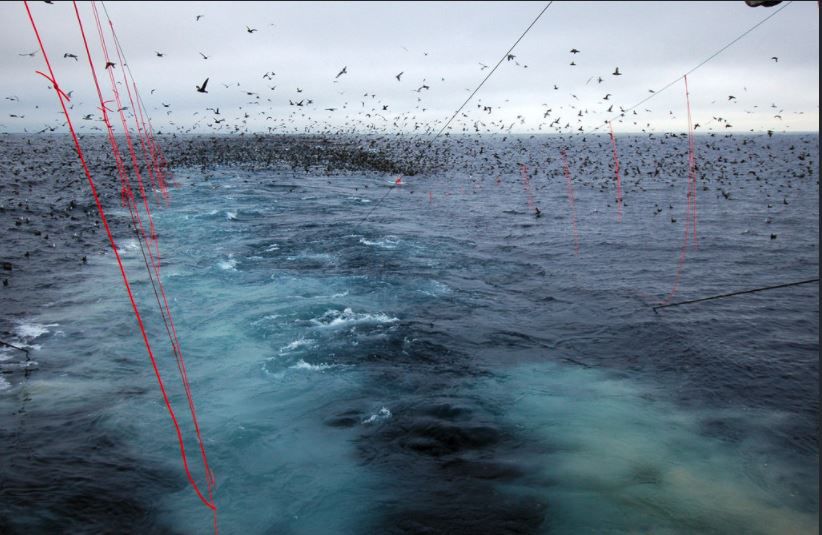Following consideration at the Tenth Meeting of ACAP’s Advisory Committee, held in Wellington, New Zealand in September last year, three updated documents that review best-practice advice for mitigating seabird mortality in demersal longline, pelagic longline and pelagic & demersal trawl fisheries have been posted to this website (click here).

Deploying bird-scaring lines behind both longline and trawl vessels is a best-practice measure, photograph by Amanda Gladics
The documents can also be accessed individually:
French and Spanish versions of the three documents will be posted to this website soon.
Earlier versions adopted at the 2014 and 2016 meetings of the ACAP Advisory Committee remain available online (click here).
John Cooper, ACAP Information Officer, 28 March 2018

 English
English  Français
Français  Español
Español